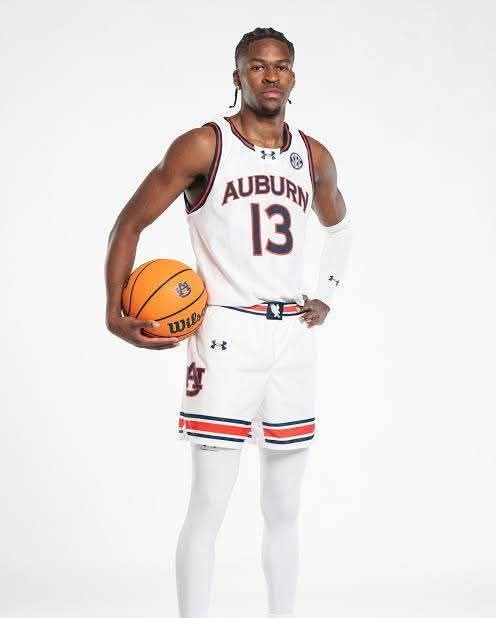As the Tennessee Volunteers gear up for the 2025 college football season, there’s an unmistakable sense of skepticism surrounding their potential, both from fans and national analysts. Despite a recent history of success, questions linger—particularly following significant changes to the roster. To understand the root of these concerns, we must take a deeper look at where the Vols stand entering this pivotal season.
Now in year five under head coach Josh Heupel, Tennessee has transformed into a consistent winner. Over the past three seasons, the Volunteers have averaged 10 wins, a mark that puts them among the SEC’s top-performing programs. Heupel’s impact on the program is evident, especially when considering the team’s offensive prowess. Tennessee has led the SEC in rushing yards in two of the last three seasons, and their defense ranked among the top 10 nationally just last year. These statistics point to a team operating at a high level in multiple facets of the game, suggesting a solid foundation heading into 2025.
Adding to their credibility is Tennessee’s landmark achievement in 2024: their first-ever College Football Playoff (CFP) appearance. Reaching the CFP is typically a sign of a program on the rise, one that’s ready to compete consistently with the nation’s elite. It should signal momentum, inspire confidence, and solidify a spot among the top contenders entering the next season. However, that hasn’t been the case for Tennessee.
Despite last year’s playoff success, early indicators suggest a lack of national confidence in the Volunteers. FanDuel, a leading sportsbook, has set Tennessee’s regular season win total at 8.5—a notable drop considering their recent success. Moreover, the Vols are absent from ESPN’s most recent Top 25 rankings. For a team that just made the CFP, this lack of recognition is jarring and prompts the question: what’s behind this dip in expectations?
Much of the doubt can be traced back to the quarterback position. The Vols suffered a significant loss this offseason when quarterback Nico Iamaleava made a surprise exit. His departure is the centerpiece of the current uncertainty surrounding Tennessee. Iamaleava, a former five-star recruit, showed flashes of brilliance in 2024. He brought a dual-threat capability to the offense, making plays both in the air and on the ground that justified the hype he carried into college. Though he only threw for around 2,600 yards and 19 touchdowns, his potential to improve in his second year as a starter had many optimistic about the offense’s trajectory.
With Iamaleava gone, Tennessee is expected to pivot to Joey Aguilar as their starting quarterback. Aguilar’s style contrasts significantly with that of Iamaleava. He’s a traditional pocket passer—calm under pressure and willing to take risks to push the ball downfield. While his toughness and competitiveness are praised, this approach could also result in turnovers. It’s a different flavor of quarterback play, and it introduces new variables into an offense that was already experiencing inconsistencies through the air.
That said, for those who’ve closely followed the Volunteers, quarterback might not be the most pressing issue. Instead, the bigger concern lies with the wide receiver group. Last season, the passing game struggled, and that wasn’t solely due to the quarterback. Tennessee’s receiving corps lacked the firepower typically associated with elite offenses in the SEC. This problem hasn’t been fully resolved heading into 2025.
There is, however, hope on the horizon. Wide receiver Mike Matthews enters his sophomore season with sky-high expectations. He showed flashes of brilliance as a freshman and is now being looked upon to take the next step and become a reliable No. 1 target. Alongside him, veterans Chris Brazzell and Braylon Stlley are expected to provide leadership and experience to a relatively youthful group of receivers. If Matthews can emerge as a dynamic playmaker and the supporting cast holds up, the Vols could take a significant step forward in the passing game. But that’s a big “if,” and it contributes to the doubts that surround the team.
Beyond the skill positions, Tennessee’s offensive scheme under Heupel remains a major asset. His up-tempo, spread-based attack is designed to stretch defenses and create mismatches, especially in the run game. This approach has been highly effective during his tenure, evidenced by the team’s dominance on the ground over multiple seasons. If the offensive line can hold up and the running backs continue to deliver, the Vols could lean more on their rushing attack in 2025, easing the pressure on the new quarterback and receiving corps.
On defense, Tennessee remains solid. The 2024 season saw the unit finish in the top 10 nationally, which was a major contributor to their CFP run. While there are always departures and new faces in college football, Tennessee’s defensive coaching staff has shown the ability to develop talent and maintain consistency on that side of the ball. If the defense can perform at a similar level in 2025, it will give the offense time to find its rhythm and provide the team with a steady foundation.
Ultimately, the skepticism surrounding Tennessee entering 2025 comes down to change—specifically, the unknowns surrounding key offensive players. The departure of Iamaleava left a void at quarterback, while the lack of proven playmakers at wide receiver raises valid questions about how explosive this offense can be. Yet, despite those concerns, the program’s recent track record should not be overlooked. Heupel has built a winning culture, crafted a dangerous offense, and overseen one of the SEC’s better defensive units.
There may be doubts, but there’s also potential. If Joey Aguilar can manage the offense efficiently, if Mike Matthews lives up to the hype, and if the defense remains strong, Tennessee could surpass expectations. The talent and coaching are in place. What remains to be seen is whether this team can overcome the question marks and reestablish themselves as a true contender in 2025.



